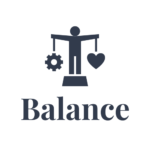Last Updated on March 15, 2024 by Treana Wunsch
In my last article ‘5 Obvious Signs You Need to Hire Help for your Small Business to Succeed‘, I went over how to know when to hire help for your small business. If you’re not sure if it’s a good time to hire help, go back and read that article first. If you know you need to hire help, keep reading.
For those in the small business world, understanding how to hire the right worker for the job can be overwhelming. Knowing the difference between employees, freelancers and contractors makes all the difference.
In this article, we’ll explore the key differences between types of workers and provide some helpful tips for making the right decision to hire the right worker for your small business. We’ll also look at which type of hire might be best suited to different types of jobs.
How to Hire the Right Worker
Employees are the traditional form of labour, hired by a company and paid a salary or hourly wage. They typically have regular working hours, vacation days, and other benefits that come with being an employee. Employees also tend to have more consistent work-life balance and job security than freelancers or contractors.
Freelancers are independent workers who offer their services to businesses on an as-needed basis. They often specialize in one particular skill set, such as graphic design or programming, but may provide a range of services depending on their experience. Freelancers are typically paid per project rather than a salary or hourly wage. While this can lead to higher earnings potential for freelancers, it can also mean less job security since there is no guarantee of future work after each project is completed.
Contractors are similar to freelancers in that they provide services as needed and may specialize in a particular skill set; however, they are generally considered “hired” by the business instead of working independently. Contractors may receive payments on an hourly basis or be paid per task completed; however, unlike employees, they do not usually receive any benefits from the hiring company beyond pay for their services rendered.
What is an Employee?

An employee is a person who works for an employer in exchange for salary and benefits. Employees can range from full-time to part-time, temporary, or casual positions. They are typically considered a long-term workforce member and given job stability, with the expectation that they will remain employed by the same employer for some time as long as their contractual obligations are met. Employees receive wages, Employment Insurance and Canada Pension Plan contributions and other benefits such as health insurance plans, vacation days and retirement plans.
For example, John Smith is a software engineer who was hired by ABC Corporation to develop software programs specifically for them.
What is a Freelancer?
A freelancer is a self-employed individual who typically works on an independent basis from clients or employers. Unlike employees, freelancers are not obligated to remain with any particular employer for a certain duration of time. They may choose to take on projects as they come and work with multiple clients at once. Freelance workers also get the benefit of setting their own rates and choosing the projects they want to work on, giving them more control over their career path than traditional employees.
For example, a freelance graphic designer might create logos and website designs for clients on a project-by-project basis.
What is a Contractor?

A contractor is a person or business that provides services to a company for a fee. They are usually independent contractors, meaning they operate as their own business entity, rather than being an employee of the company hiring them. Contractors usually specialize in certain areas and provide services on an as-needed basis. For example, someone may hire a contractor for web design work, software development, plumbing repairs or other specialized tasks which the company can’t handle internally. Businesses may also hire contractors to fill temporary positions when needed.
While the terms ‘freelancer’ and ‘contractor’ are often used interchangeably. Contractors typically have ongoing or long-term contracts with companies which allow them to set their own hours and workloads while still receiving a steady income from the same client(s), as opposed to freelancers who are paid per project or task completed.
For example, a contract engineer provides engineering services for a company for a set length of time. There may be other contractual obligations required such as having specific insurance or certifications.
Pros and Cons of Hiring Employees

One of the main advantages of hiring employees is that they become part of your team and help to create a cohesive workplace. Employees have the potential to be more loyal than freelancers and contractors, creating a sense of collaboration and trust between both parties. They are also able to make an ongoing commitment to working for you, providing continuity in terms of job roles and responsibilities which can be difficult with other types of workers.
On the downside, hiring employees requires more upfront costs such as taxes and benefits. You’ll need to provide them with regular training too, which can take up valuable time and additional costs. Plus, it could be riskier if you’re taking on someone who may not have the right skills or experience for a role compared to working with professionals who are used to dealing with specific tasks or assignments. Additionally, employee turnover can be costly since replacing someone requires additional resources and effort from you or the HR staff.
Pros and Cons of Hiring Freelancers

One of the biggest advantages of hiring freelancers is their flexibility. Freelancing allows them to accept and complete assignments on their own time, giving employers access to an array of talent that may not otherwise be available. Additionally, freelancers can save employers money in terms of costs associated with benefits, taxes and workers’ compensation insurance as they are generally paid on a per-project basis. Furthermore, some freelancers have specific industry expertise which can be beneficial for businesses looking for certain skill sets or specialized knowledge for particular projects.
On the other hand, there are drawbacks to working with freelancers – notably the lack of control over quality assurance and timelines associated with each project. Employers may find themselves paying more than anticipated if deadlines are missed or projects don’t meet expected standards due to miscommunication between both parties. Without having an employee relationship established, it can be difficult to provide guidance and ensure expectations around deliverables are met in a timely fashion.
Pros and Cons of Contractors

One of the key advantages of hiring contractors is the cost savings they bring. Contractors are generally hired on a project basis and their fees are usually much lower than those of full-time employees. Furthermore, since their contracts usually have specific deadlines, you can ensure that projects are completed in a timely manner. Additionally, because you’re not responsible for providing benefits or other compensation to contractors, your overhead costs can be reduced significantly.
On the other hand, much like freelancers, one downside to consider when hiring contractors is the lack of control over your workforce. Since they work remotely or as part-time consultants, it can be difficult to keep track of them and monitor their progress effectively. This can lead to delays in project completion and higher costs if unexpected changes need to be made along the way. Another disadvantage is that contractors do not provide the same level of job security as full-time employees; once a contract ends or a project finishes, there’s no guarantee that they will continue working with you in the future.
Considerations for Hiring
Employees are often the best option for longer-term projects that require ongoing support. Generally, employees are hired on a permanent basis and their salaries or wages remain fixed. This can be relatively expensive in terms of salary and benefits. Employers must also pay payroll taxes and cover other related costs such as vacation time, health insurance, and more.
Freelancers or contractors may be a good choice when you need help with specific tasks or projects that only require short-term support. Since freelancers typically work at an hourly rate, employers don’t have to worry about additional overhead costs like benefits packages, payroll taxes, training etc., which can help reduce overall expenses significantly.
However, since freelancers tend to focus on one particular task at a time, they may not have the same level of expertise as an employee who is familiar with your organization’s culture and processes. On the other hand, they may possess expertise that your employees do not have and that is needed on a temporary basis.
Overall it’s important to weigh the cost advantages of hiring either employees or freelancers/contractors against other factors such as skillset and job duration before making any decisions about which type of hire is best for your small business’s needs.
Conclusion: Know Which to Hire

When considering the cost associated with hiring employees, freelancers and contractors, employers need to factor in the long-term costs. Employees bring stability through having a full-time job, which can be an advantage when it comes to training and developing skills.
Depending on the company’s needs, however, freelancers may be better suited as they are often more flexible and available for short-term projects. Contractors tend to offer exceptional expertise at a lower cost than hiring a full-time employee would, but finding reliable contractors can be difficult and require some research. Ultimately, it is important to consider all of these factors when deciding which one to hire for any particular project or task.
To make sure you are making the best decision for your business when selecting between employees, freelancers or contractors you should take into account both their skillset and their availability. An individual who has specialized knowledge might be able to provide great value in a specific area but may not have enough time available if they are already working as an employee or freelancer elsewhere.
On the other hand, someone who has lots of free time may not have enough experience in your field so it is important to weigh up both factors before making your decision. Additionally, you should always look into references from previous employers before making any decisions on who to hire as this will give you an indication of whether they will meet your expectations or not.
Thanks for reading! I hope this helped you to decide how to hire the right worker for your small business.
If not, let me know what questions you still have in the comments below!












